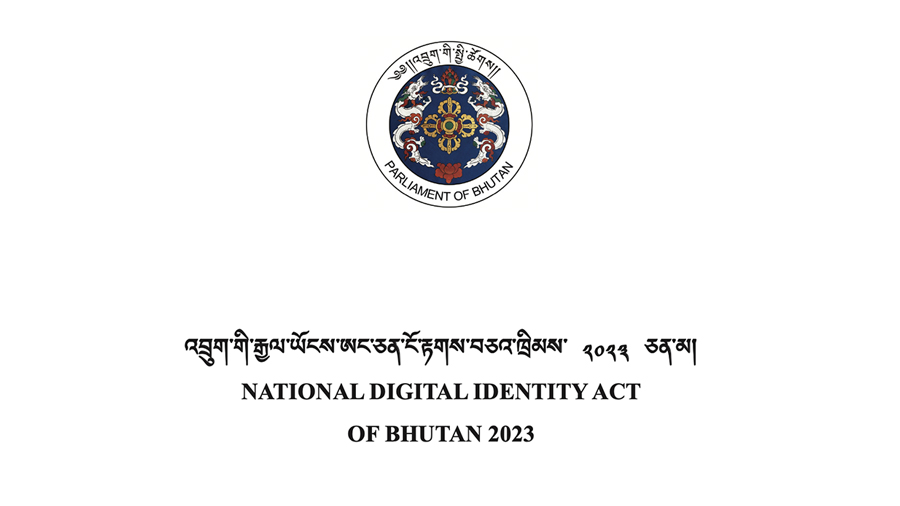
Ushering in a new era of digital transformation in Bhutan, His Majesty The King has granted Royal Assent for the National Digital Identity or the NDI Act recently. According to a joint news release from the Druk Holding Investments, DHI and GovTech Agency, the passage of this Act makes Bhutan the first sovereign state to implement a comprehensive decentralised digital identity framework. This is expected to address key concerns by empowering citizens to protect themselves in the digital age.
Earlier this month, the NDI Bill was unanimously passed by both the National Council and the National Assembly during a joint sitting.
While the DHI is still in the process of developing an NDI app and onboarding services that will benefit the people, the Act after the Royal Assent will now empower the formation of the governing body and NDI company.
“We are working on having that established. This governing body will play a crucial role in establishing a governance framework and approving all the regulations under which the NDI company will function,” said Jigme Tenzing, Acting Secretary of GovTech Agency.
Many services will be made accessible through the Bhutan NDI digital wallet, which is currently being developed by Druk Holding & Investments. The wallet will have three core capabilities such as secure digital signing, seamless digital currency transactions, and verifiable credential storage and exchange. The NDI will essentially transform the way services are delivered to citizens.
Jigme Tenzing, Acting Secretary, GovTech Agency (ENG)
“Everybody has information relating to your identity. For example, whether you are authorised to drive a vehicle, whether you are old enough to consume alcohol, whether you are the owner of a business, whether you own land, whether you are the rightful owner of a bank account, all of these information are necessary for conducting a transaction. Even for that matter, your degree certificate, all of these credentials now can be easily provided as verified credentials into your digital identity and without having to rely on a third party, you can use that credential directly on a bilateral basis verify yourselves.”
For the National Digital Identity, the census and civil registration department has so far collected biometrics of more than 550,000 people in the country. The department is still collecting biometric data from the remaining population.
Samten Dolkar


